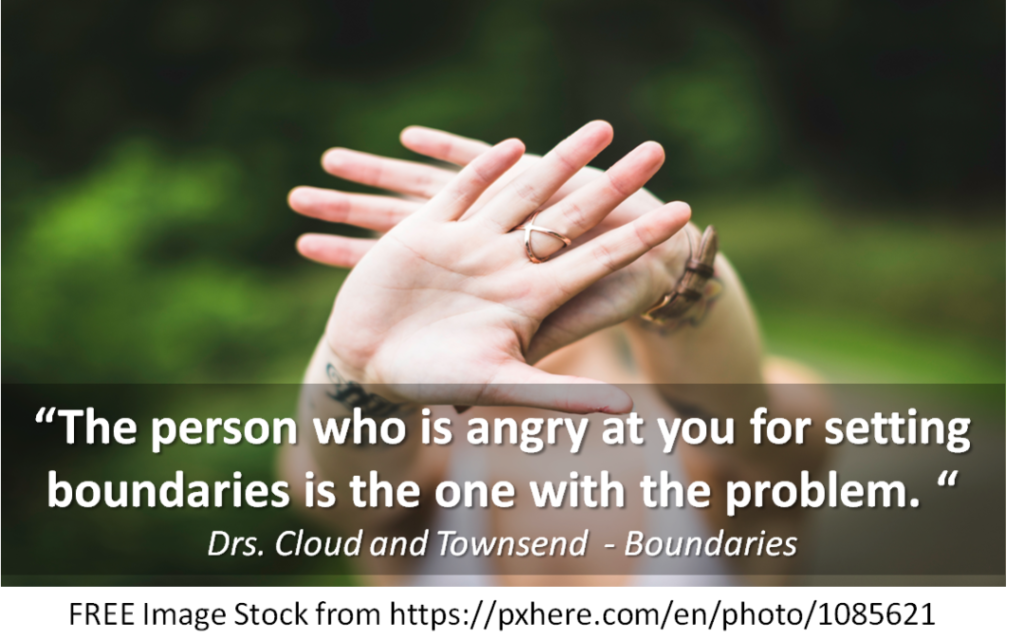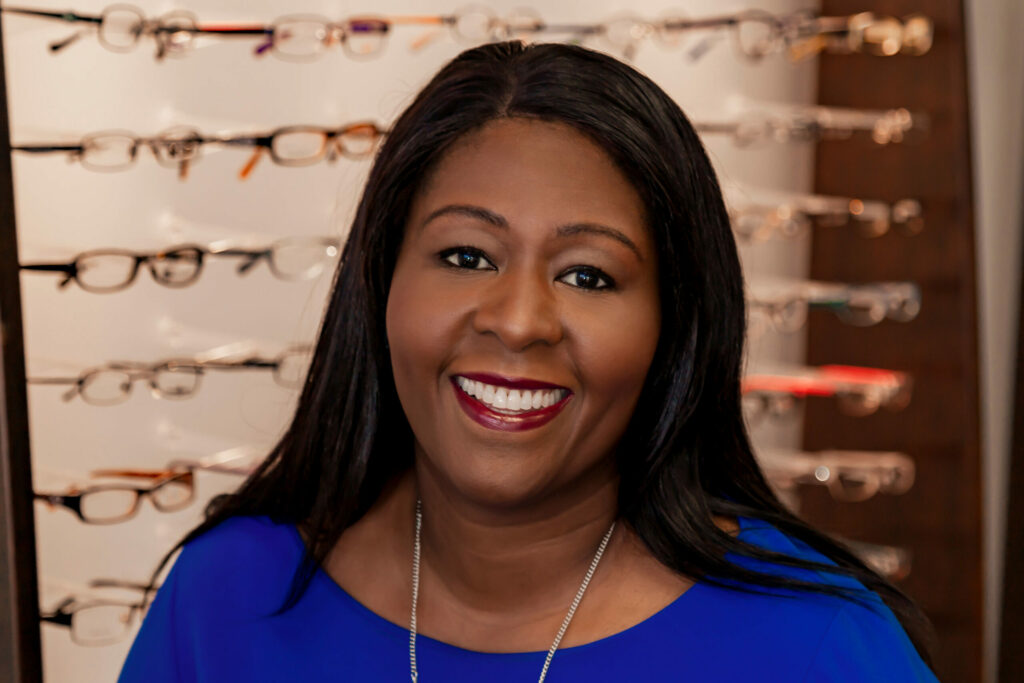Boundaries – The Cure For Your Overwhelmed Life – Part 1

“The more you value yourself, the healthier your boundaries are.” – Lorraine Nilon
As I’ve traveled across the country, meeting countless women ODs through Optometry Divas, one recurring theme has emerged in almost every conversation: the overwhelming stress of balancing personal and professional responsibilities. In fact, based on feedback from discovery meetings and surveys on our Facebook group, the majority of women ODs express feeling stretched thin by all the demands in their lives.
This is exactly why I’ve decided to write this series on boundaries. As a fellow woman OD, I understand how life can become overwhelming, trying to juggle a career, a family, and everything else in between. If you’ve followed my blog, you may be familiar with my personal journey of burnout and recovery. I know first-hand the crushing sensation of trying to do it all.
But rather than recount my own story today, I want to introduce you to one of my clients. For the sake of privacy, we’ll call her Mara.
Meet Mara
Mara is a 35-year-old optometrist with two children—eight-year-old Nadia and six-year-old Michael Jr. She’s married to Michael Sr., a 37-year-old engineer. Both Mara and her husband work full-time, and from the outside, her life may seem picture-perfect.
But here’s what a typical day looks like for Mara:
She wakes up at 7 a.m., immediately rushing to get the kids ready for school, ensuring they’ve got their uniforms, school bags, and PE kits. With two children attending schools six miles apart, Mara spends close to two hours every day just driving between drop-offs and work.
While her husband, Michael Sr., prepares for work without lifting a finger to help, Mara takes it all upon herself because she believes she’s more efficient at getting things done. After work, Mara picks up her children and shuttles them to after-school activities—swimming, gymnastics, soccer, karate, tutoring, and music lessons. At home, she cooks dinner, cleans up, and finally gets the kids to bed.
You’d think that would be the end of Mara’s day, but it isn’t. Instead of winding down with a glass of wine and her favorite Netflix series, she has to tune into a late-night MACRA/MIPS webinar. By the time she hits the sack around midnight, her mind is still racing, and sleep is a struggle. And by morning, the cycle starts all over again.
Mara’s overwhelmed, exhausted, and feeling like she’s barely keeping up. Will this madness ever end?
The short answer: Not until Mara sets some personal boundaries.
Why Boundaries Matter
Without boundaries, you find yourself constantly overextended, feeling guilty if you don’t meet the needs of everyone else around you. This is especially true for professional women like Mara, who are balancing the demands of their career, their families, and their personal well-being. Before showing Mara how to set boundaries, it’s important to understand the different types of boundaries that exist.
The Different Types of Boundaries
According to PsychCentral.com, there are several categories of boundaries that affect different areas of your life:
- Material Boundaries
These determine how you handle lending or giving away things like money, cars, clothes, or food. Do you easily part with these resources, or do you struggle to say no? - Physical Boundaries
Physical boundaries relate to your personal space and physical privacy. For instance, do you feel comfortable with a handshake or a hug? Are you okay with loud noises, or do you need quiet? - Mental Boundaries
These boundaries pertain to your thoughts, values, and opinions. Are you easily influenced by others, or can you hold onto your beliefs without feeling threatened? Can you listen to different opinions without becoming defensive or argumentative? - Emotional Boundaries
Emotional boundaries involve distinguishing your feelings and responsibilities from others. Healthy boundaries protect you from taking on others’ emotions, guilt, or blame. They allow you to remain clear about your own feelings and avoid becoming overly reactive or emotionally charged. - Sexual Boundaries
These boundaries help protect your comfort level with sexual interactions—determining what, where, and with whom certain physical activities take place. - Spiritual Boundaries
These apply to your beliefs and experiences related to your connection with a higher power, defining your spiritual practices and your comfort level with sharing them.
Help Mara Set Boundaries
Mara is struggling with boundaries in multiple areas of her life. But where does she need the most help? Take a look at her daily routine and identify which boundaries she’s lacking. Is she struggling with physical boundaries by overextending herself with time and energy? Or perhaps it’s emotional boundaries, as she takes on everyone else’s responsibilities while neglecting her own needs.
I’d love to hear your thoughts—please share your answers in the comments below. By participating, you’re helping a fellow woman OD find clarity and support in her journey.
Next Week: Why Boundaries Are Hard to Set
Next week, we’ll explore why so many women find it difficult to set boundaries and what underlying beliefs keep us stuck in this cycle of over-responsibility and guilt. Until then, take a moment to reflect on your own life: Are you feeling overwhelmed? Could setting clearer boundaries be the solution?
Feeling Overwhelmed and Stressed Out?
If you’re ready for change and want peer support to help you achieve the work-life satisfaction you deserve, I invite you to join our Optometry Divas Community. In this supportive community, we’ll empower, connect, and promote the success of women ODs just like you. Click HERE to join us today and take the first step toward reclaiming your time and energy!
By writing this article series, I hope to help women like Mara—and maybe even you—discover how boundaries can be the cure for an overwhelmed life. Let’s go on this journey together.






Responses